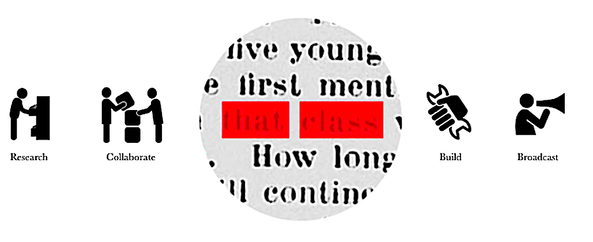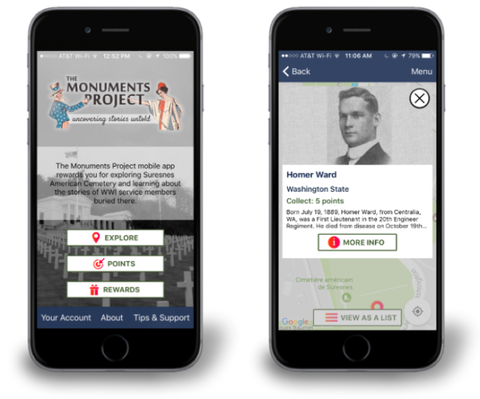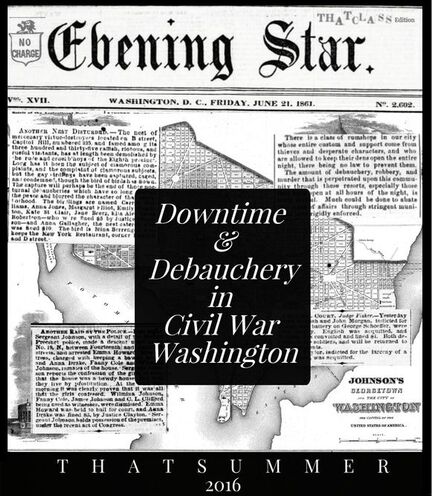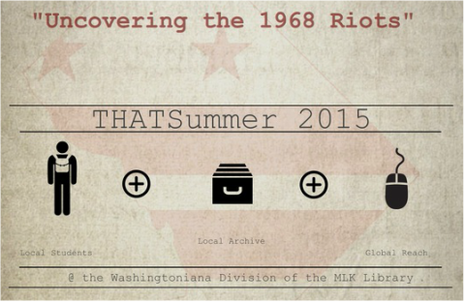2018-2019
2018

Presented "Forming Student Historians: Primary Sources and Historical Research at all Levels" at the annual Organization for American Historians Conference in Sacramento, CA. We made a particular effort at OAH to break down what we see as arbitrary barriers between approaches to student engagement with the past based on age and academic level. Our combined experience working with students from middle school to undergrad has affirmed our belief in the ability of students along that entire spectrum to engage in more meaningful, relevant research work.
Fall 2017
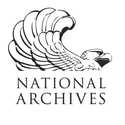
Formally partnered with the National Archives @ Atlanta to run workshops with students and teachers on how to research NARA@Atlanta's rich collection of World War One archival collections and use that research to participate in the Monuments Project. Workshops helped students and teachers explore this specific historical content area while also modeling our pedagogical approach to introducing student researchers to archival spaces. Skills developed included question formulation, assessment of available collections in a given archive, the zen and art of pull request submission, analysis of sources, development of iterative research questions, and reflection on findings. We then participated in NARA@Atlanta's WWI Symposium later that week, sharing details and documentation of our work in the archives that week.
Summer 2017

We were honored to participate in the Library of Congress "Collections as Data" conference. This presentation threads much of the work we've done in different settings since 2013, both in the archives and in the classroom. In this video we discuss our pedagogical philosophy and approach and share documentation of our students' experiences and the work they produced. We were doubly honored to have THATSummer 2015 participant, Brian join us toward the end of the presentation and promptly steal the show.
Spring 2017
|
Presented on "Uncovering History at the National Archives: When High School Students Engage in Graduate-Level Research." For this presentation we initially planned on sharing our past experiences with students at the National Archives in Washington, DC and how the results supported the pedagogy we were busy advocating for. We ultimately took a different approach. The conference took place in Atlanta, where another NARA branch was within reach. Instead of rehashing old work at this conference we decided to test our approach anew, in an unknown city, in an unknown archive, and working with archivists, teachers and students with whom we had no prior relationship. We connected with a teacher at the Lab School in Atlanta who was open to this idea. We spent a couple of days with her students in the archive, documented it all, spent Friday night cutting the hours of video to under 5 minutes and built a fresh presentation around that before our Saturday morning slot. Such an approach is likely not sustainable. Could not have done this without Lab Atlanta's participation and the remarkable staff at NARA Atlanta.
|
Summer 2016
|
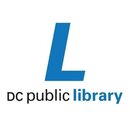
Officially partnered with DC Public Library for a 3-week archives-based digital humanities program for high-school-aged students in the Summer of 2016. Participating high school students spent three-weeks researching the Bawdy Houses (brothels) of Civil War Washington. In the course of their study, they researched the small amount of existing scholarship. What they found was incomplete and in need of primary source documentation. Soon they were well on their way to graduate school-level scholarship. In examining "Civil War Washington" [civilwardc.org], an award-winning digital collection prepared by Kenneth Winkle, a renowned Civil War and Lincoln scholar, the students found that the layer for their area of research was incomplete. This was an organic way for students to generate questions based on existing scholarship and identify what resources were available to enable them to add to that scholarship. The group became the first high school students to digitize documents for the National Archives' Catalog. They were also the first group to do the same for the DCPL catalog, DigDC. Below is a sample of their contribution.
See more detail and samples of their work HERE.
See more detail and samples of their work HERE.
Summer & Fall 2015
|
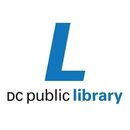
Officially partnered with DC Public Library for a 3-week archives-based digital humanities program for high-school-aged students in the Summer of 2015. Participating students developed skills for assessing existing scholarship on the 1968 riots, formulating research questions to expand that scholarship, surveying available collections, working with an archivist to gather necessary materials, identifying alternative and relevant archives for expanding scope and access, and answering research questions and scholarly gaps with multimodal expression using online platforms like Wikipedia and ArcGIS StoryMaps software. Students utilized materials in physical photographic, textual, and cartographic forms and also developed fluency in microfilm readers. Research primarily took place at our home base in the DCPL MLK Library's Special Collections but also included visits to National Archives I and the DC Fire Department's collections, which allowed them to map the city's response to the riots. Lastly, perhaps most notably, students learned how to deal with barriers to information. The DC Police Department refused to let us access their death report for the riots after initially welcoming us to visit and assess that report. So we learned how to file a FOIA request, which was subsequently granted. Participating students formally presented on all of this at the 2015 DC Historical Studies Conference.
Read more HERE.
Read more HERE.
2014

Provided curriculum consultation on Project-Based Learning design and implementation for the Smithsonian Gardens' Community of Gardens program.
Fall 2013

Presentation on "Pedagogical Pollination: Crowdsourcing DC History Through Partnership and Collaboration" at the Center for Historic American Visual Culture (CHAViC) for the American Antiquarian Society Annual Conference. This presentation highlighted our nascent efforts to build bridges between classrooms and archives, emphasizing the mutual potential benefit that such relationships could yield for both archives in need of scrutiny and students in need of more authentic, challenging, and meaningful engagement with the past.
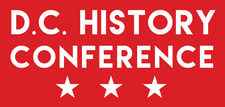
Our high school students opened the 40th Annual Conference on D.C. Historical Studies with a presentation on "Life In The Alley: Revitalizing Historical Narratives." Students presented on their experience substituting textbook work with study of neglected archival sources. While the presentation gave an overview of the content and specific materials explored it was more of a reflection on this alternative pedagogy, the frustration it initially led to, and their ultimate views on the experience and how it compared (positively) to previous historical study in school that mostly focused on retention and content assessment. "We were forced to create our own historical narrative..." one student said and his colleague concluded that this style of work was "definitely important, definitely something that's going to help me in pretty much everything that I've been doing and will do in the future."
Summer 2013
Presented "Imagining THATClass: Move over STEM, Make Room for THAT!" at THATCamp Prime, Roy Rosenzweig Center for History and New Media, George Mason University. This was our attempt to toss our experimentation to this point into a room full of creative, challenging thinkers and see what came out of it. 5 years of interesting work in a variety of archives with many students resulted. We're still playing with those ideas today but this conference was a pivotal moment for us in putting ourselves out there and getting feedback.
2012-2013

Unofficially partnered with the Historical Society of Washington (now the DC History Center) using their manuscripts from James Borchert, who wrote "Alley Life in Washington." In addition to working with full collection of archival materials in the classroom we introduced high school students to the National Archives' Research Room for access to property records for Alleys in Washington and visited one of the alleys we were studying with a DC resident that grew up in said alley. Students presented at the 2013 DC Historical Studies Conference, which required learning what a historical studies conference was and how to construct a proposal to participate. In addition to the historical analysis and writing involved in this work, other skills developed included digital research and digital mapping. Read more HERE.
|
